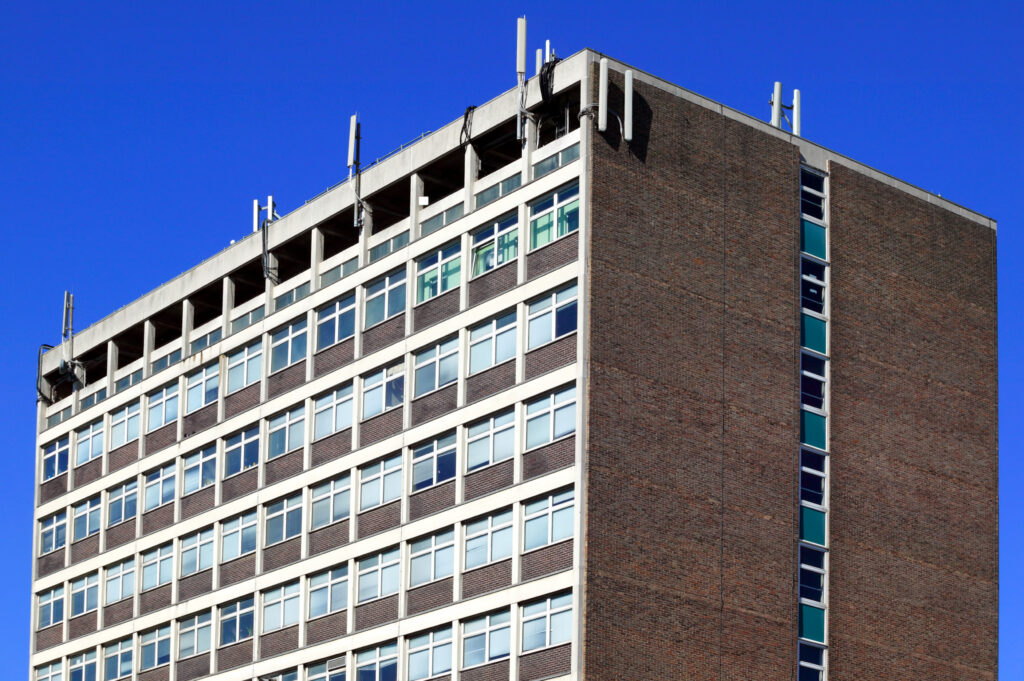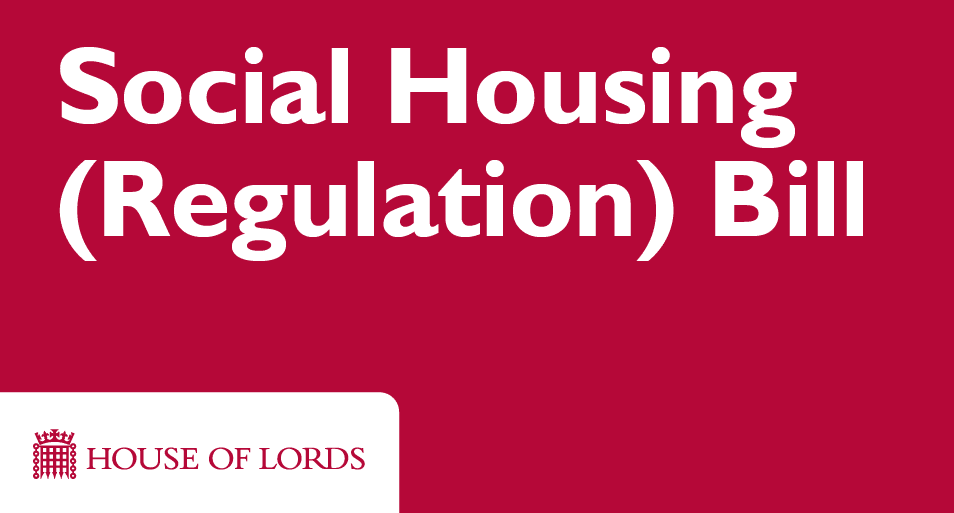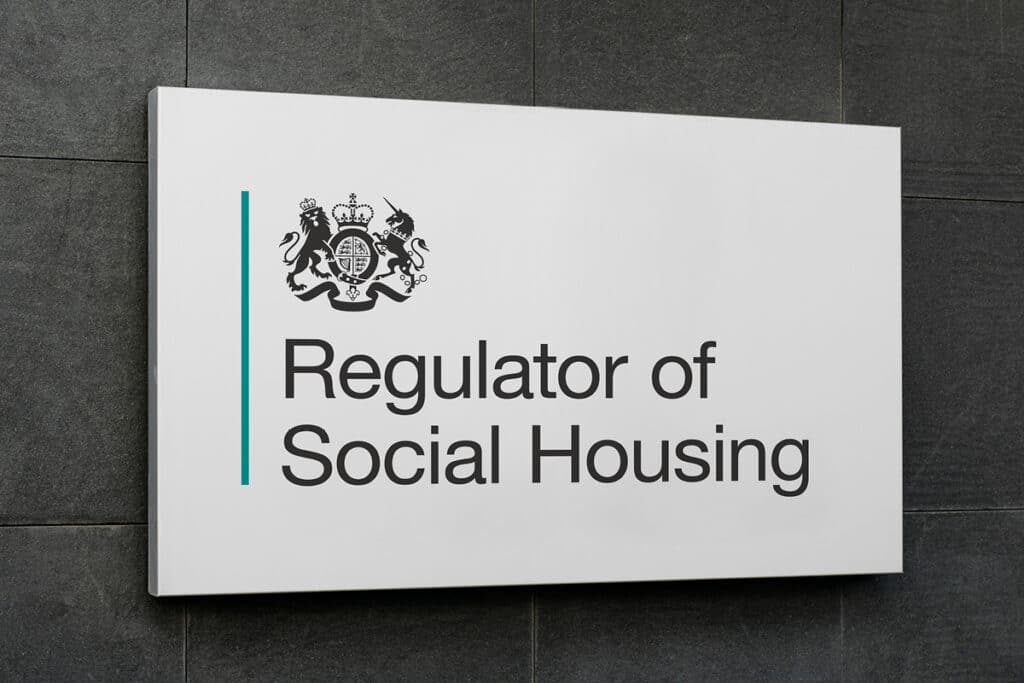This Month In Social Housing: July 2023
Ah, July…you’d be forgiven for thinking that not much goes on in the world of social housing during the summer months, what with Parliament shutting down and many folk within the housing sector taking well-earned summer breaks. We’re far too long in the tooth to be lulled into a false sense of calm here though and know more than most that the crazy world of social housing stops for no man. If you’ve been frenetically preparing your work handovers ahead of jetting off to sunnier climes and have simply not had the chance to stay on top of all the top stories from within social housing, or maybe you’re already on your holidays and just can’t keep away from work-related happenings, then fear not as July’s edition of This Month In Social Housing is here to bring you up to speed…

Housing Minister Disputes Data Indicating Decline in Number of Social Homes Being Built
Housing Minister Rachel Maclean has denied the accuracy of official data indicating a decline in social rent housing construction since 2010. During an interview after her speech at the Housing 2023 conference in Manchester, she defended her claim of the government achieving “record” numbers of social homes. When confronted with the fact that new social rent homes have decreased from 39,562 annually in 2010 to 7,644 last year, Maclean dismissed the figures, asserting that she recognises the data presented in her speech instead. However, government data contradicts her claim, showing 161,577 social rent homes completed since 2010, compared to 362,912 between 1997 and 2010. The decline in social rent housing is attributed to the use of affordable housing grants to fund shared ownership or higher “affordable” rents, resulting in fewer socially rented homes being built since 2015.

Vacant Commercial Buildings Could Provide 20,000 Affordable Homes, Say MPs
According to a report from the All-Party Parliamentary Group (APPG) for Housing Market & Housing Delivery and APPG for Ending Homelessness, empty council buildings in England have the potential to be transformed into 20,000 affordable homes. MPs have urged the government to take action in repurposing these vacant commercial properties to address the housing supply shortage. The resulting report emphasised the need for safeguards to ensure that the resulting homes are of high quality and genuinely affordable, highlighting that there is an opportunity to create thousands of homes from empty local authority buildings alone, without considering the potential for conversions from private-sector vacant commercial properties. Currently, 14% of retail unit space and 7% of office space remain unoccupied. To make these conversions successful and avoid repeating poor-quality development, the MPs identified three areas requiring government intervention. One of the most concerning findings was that, unlike most developments, there is no current requirement for office-to-residential conversions to include a certain percentage of affordable homes, leading to a lack of accessible housing in such projects.

High Court Rules Government Decision to Reject Key Grenfell Inquiry Recommendation was ‘Political’
The High Court has ruled that the government’s rejection of personal emergency evacuation plans (PEEPs) for disabled individuals, a key recommendation from the Grenfell Tower Inquiry, was deemed a “political decision” but was “not unlawful”. The case, brought by the Cladding Leaseholder Disability Action Group (Claddag) last year, pushed for the implementation of PEEPs for people with mobility issues living in high-rise buildings. Judge Mary Stacey acknowledged that the decision not to implement PEEPs must have been disappointing for the claimants but stated it did not violate public law or procedural fairness. The government had committed to adopting all the recommendations from the Grenfell Tower Inquiry in 2019, but later deemed the mandatory implementation of PEEPs as “not proportionate” in a consultation document in May 2022, opting to rely on ‘stay put’ advice instead. The Grenfell fire tragically claimed the lives of 72 people, including 15 disabled individuals, highlighting the importance of improved safety measures for vulnerable residents.

Social Housing (Regulation) Act Receives Royal Assent
Social Housing (Regulation) Act has received royal assent in parliament, marking a significant step in regulatory change within the social housing sector. The act, initiated more than six years after the tragic Grenfell Tower fire that claimed 72 lives, brings about comprehensive reforms to ensure stringent consumer regulation. Proposed after the disaster, the act addresses the failure of landlords to address fire safety concerns raised by residents. The new legislation imposes various obligations on landlords, while empowering the Regulator of Social Housing (RSH) and the Housing Ombudsman. ‘Ofsted-like’ inspections, conducted by the RSH with minimal notice, are to be introduced, and the RSH can now mandate emergency remedial work and levy unlimited fines. Under the reforms, the RSH can also issue ‘performance improvement plan notices’ to social landlords who fail to meet standards or provide requested documents. Additionally, the act includes ‘Awaab’s Law,’ named after two-year-old Awaab Ishak, who died from prolonged exposure to mould in a Rochdale Boroughwide Housing flat – that requires social landlords to respond to and investigate repairs within certain timescales, which are yet to be set.

RSH Consumer Standards to Require Physical Inspection of Properties by Social Landlords
The Regulator of Social Housing (RSH) has initiated a consultation on revised consumer standards, proposing that social landlords conduct physical inspections of all their properties to assess their conditions accurately. The move comes as the regulator aims to replace existing standards with four revised ones to enhance tenant protection and service quality: the Safety and Quality Standard, Transparency, Influence, and Accountability Standard, Neighbourhood and Community Standard, and the Tenancy Standard. These changes form part of broader reforms brought in by the recently enacted Social Housing (Regulation) Act and grant the RSH increased powers to scrutinise landlords’ performance. From April 2024, measures including regular inspections to assess compliance and the ability to take action against non-compliant landlords will be implemented. The RSH is seeking a wide range of views on the proposed standards, including speaking directly to tenants, with the consultation period running for 12 weeks and concluding on 17 October.
Well, that wraps up another eventful month, packed with noteworthy occurrences in the sector (despite those delightful public holidays). You’re now equipped with all the key facts from the past 30 days. As we make our into the back garden to conduct some kind of ritualistic anti-rain dance, rest assured that we’ll return same time, same place next month for yet another edition of This Month In Social Housing. Adieu!
- Social Housing 2025: The Experts Predict What’s Next - January 2, 2025
- This Month In Social Housing: November 2024 - December 3, 2024
- Leveraging AI in Social Housing: Building a Data Strategy for Enhanced Compliance and Efficiency - November 26, 2024